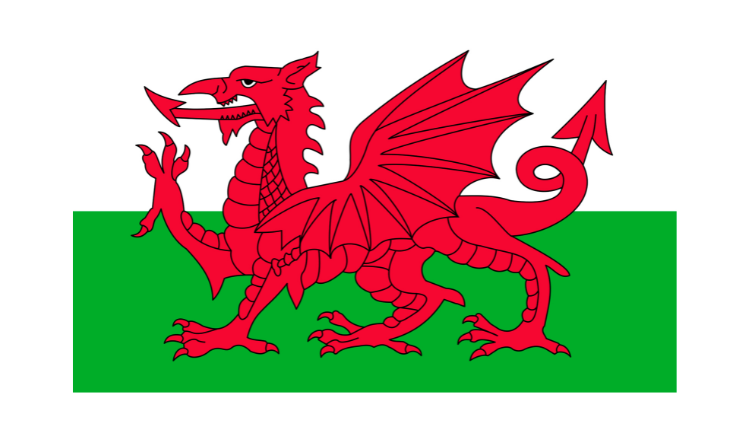Sue Smith, registered childminder and member of PACEY’s Volunteer Insight Panel (VIP)
I wanted to share my passion with others in the Early Years sector, inspire and champion the wonderful work we do with children in this vital start in their life. I felt a positive way to do this was to share my most recent experience of my Ofsted inspection visit on 4 July 2024.
My visit lasted 5 hours 30 minutes and whilst I fully appreciate all inspections may differ and follow different avenues of enquiry, I have given my own view of my inspection which I hope may help others to alleviate some anxiety, and champion the good work we do.
The learning walk
An important element of the inspection as this is the initial introduction to the space I work with the children, so by showing the inspector around I was able to explain our daily routine, how I use the rooms as well as the outside space which is integral to our day. The inspector asked me about risk assessments, as well as the daily checks so the learning walk was an opportunity to refer to and discuss this and how I assess my home and enabling environments as well as the resources and play opportunities in all areas of the setting.
My Curriculum/Pedagogy
The inspector asked how I plan for my time with the children, and how I include all 7 areas of learning within the Early Years Foundation Stage. I shared my written planning which has a focus on activities/opportunities centred around topical stories for the current term, and I explained how my planning and curriculum is inclusive and suitable for all ages and stages of children that attend my setting. I had a play tray set up as my planned activity. This was an invitation for children to play and a perfect opportunity for the inspector to observe my teaching and interactions with the children. I introduced an array of containers, small buckets together with flowers and small tweezers, spray bottle and other resources to support motor skills as the children played and explored to extend their learning as it unfolded. I also provided scissors for the children to further extend their explorations as they were interested in cutting the stems of the flowers. The children recalled a time when we made dandelion honey; they chatted about this to the inspector before replicating making honey in the tray using small stones to represent some of the ingredients. I continued to read two stories, both well known to the children, using story stones to sequence the story and inviting the children to participate and predict elements of the story telling.
I set out ladybird story stones, a favourite resource of one of the children attending on the day, together with home made laminated numbered sunflowers. The children were encouraged and supported to count spots on the ladybird stones and match these to the printed numerals on the flowers. Small bug pots, magnifying glasses, as well as story and information books were all provided to support learning. as well as a wider selection of books, small world play, Duplo bricks, dolls and railway track all to facilitate free flow play, as the Inspector asked the reasons for this particular choice of toys and resources (my intent). The children cut their own fruit for snack, using child friendly knives and choppers; they explored and experimented with each utensil until they found success. The children then divided the apple and orange between their bowls and enjoyed their snack.
Safeguarding
The inspector asked how I sleep babies and young children and how I ensure their safety whilst asleep. I was asked how I would recognise FGM and a discussion followed around the rising cases, ensuring I was fully aware of what to do if I suspected FGM was happening and who I would contact as well as whether I would discuss this with parents. I was asked how to whistle blow. I was asked how I would recognise sexual abuse and who would I contact if I suspected this was happening. I was questioned about some of the other safeguarding and welfare requirements, including: how I encourage healthy eating; how I deal with food allergies and dietary requirements; how I work with other professions as one child attends my setting and a pre-school; how I would deal with a child with disruptive behaviour.
Working in partnership with parents
I provided 9 written testimonials from parents, which the Inspector read with great interest. One of my parents also volunteered to chat to the inspector to give a first hand experience of my setting and to give feedback on her experience of the care I offer. The inspector asked questions to gather evidence about how I work in partnership with parents, which covered parent permissions and how I welcome new families and gather information on the children and their routines as well as the family home life; how I share information with parents about their children’s learning and development.
Summary
The inspector gave me her feedback and we discussed my own evaluation. She had observed how I communicate with the children, introducing new vocabulary. For example, I had used the word ‘woody’ to describe why one of the children could not cut some of the stems, and how I used the word ‘sequence’ during one of the stores as we used the story stones; the inspector commented about how I had explained the meaning of this to the children and how I encouraged a can-do attitude. She also noted how I had explained to the children what we were going to do. She commented about the quality of resources and the way I used them in a meaningful way to provide such a richness of education through play and how I inspired the children to be independent learners. During my evaluation I talked about each of the Characteristics of Effective Learning, identifying how children were learning through play whilst they played and explored, actively learning through their play.
Ofsted Inspections can be an anxious time, but in the 24 years of owning my little home grown setting, I feel this inspection was the most positive. I was just myself, believing in what I do and keeping the children at the heart of my provision. Never feel alone in running your own setting; you are the most important person to the children in your care so value yourself and the provision you offer as you are unique.
I feel totally privileged to be awarded a Ely Hero Award on the 13 September in the category of the ‘Most Amazing Professional’ for the 2024 Awards, receiving three nominations, including one from one of my children for whom I cared for some time ago and is now a young adult herself. This award was given in recognition of the care I offer as well as the fundraising I champion to make just a small difference to those less fortunate.



